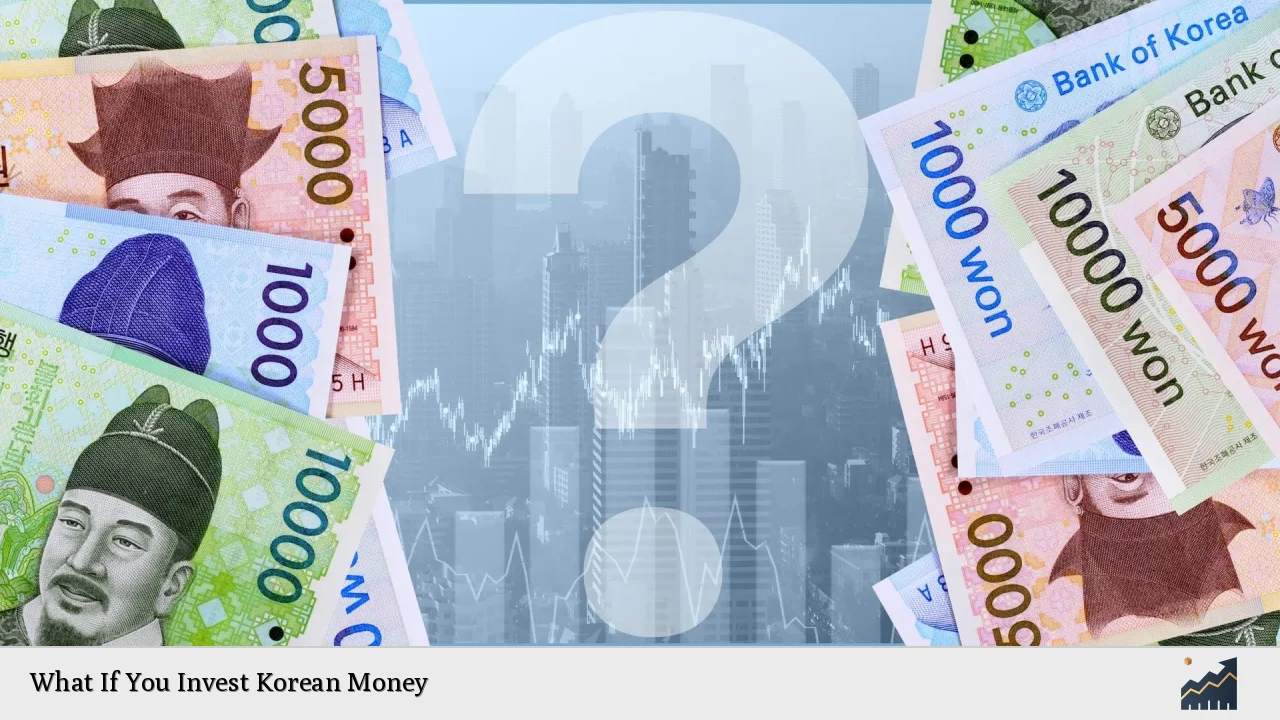Investing in South Korea can be a lucrative opportunity for both local and international investors. With a rapidly growing economy, a vibrant stock market, and various investment vehicles available, many are considering how to invest Korean money effectively. This article will explore the different avenues for investment in South Korea, the regulations surrounding foreign investments, and practical steps to get started.
South Korea’s economy has shown resilience and growth, attracting significant foreign investment. The government has implemented various initiatives to promote foreign direct investment (FDI) and improve the investment climate. Understanding the landscape of investing in South Korea is crucial for making informed decisions.
| Aspect | Description |
|---|---|
| Economic Growth | South Korea’s economy has been expanding steadily, with a focus on technology and innovation. |
| Investment Opportunities | Various sectors such as technology, healthcare, and consumer goods offer promising returns. |
Investment Avenues in South Korea
Investors have multiple options when it comes to investing in South Korea. These include:
- Stock Market: The Korean stock market is robust, with major indices like KOSPI and KOSDAQ providing opportunities for both domestic and foreign investors.
- Exchange-Traded Funds (ETFs): Investing in ETFs allows for diversified exposure to the South Korean market without needing to pick individual stocks.
- Real Estate: The real estate market in South Korea is another avenue for investment, particularly in urban areas like Seoul.
- Bonds: Investors can also consider government or corporate bonds as a more stable investment option.
- Startups: The growing startup ecosystem presents opportunities for venture capital investments, especially in technology-driven sectors.
Each of these avenues presents unique benefits and risks. Therefore, it is essential to conduct thorough research before making any investment decisions.
Understanding Regulations for Foreign Investors
Foreign investors looking to enter the South Korean market must navigate specific regulations. Here are some key points:
- Legal Entity Identifier (LEI): Foreign investors need an LEI before investing in securities.
- Investment Registration: Investors must register under their real names with the Financial Supervisory Service (FSS) to receive an investment registration certificate.
- No Restrictions on Equity Securities: Foreign investors can invest in most equity securities without restrictions, except for certain companies deemed of national importance.
- Standing Proxy: While not mandatory, having a standing proxy is recommended for non-resident foreigners to facilitate timely investment activities.
These regulations ensure that foreign investments are monitored while promoting a transparent investment environment.
Steps to Invest Korean Money
To invest effectively in South Korea, follow these practical steps:
1. Research Investment Options: Understand the various investment avenues available and identify which aligns with your financial goals.
2. Open a Brokerage Account: Choose a reputable brokerage firm that offers access to the Korean stock market and other investment options.
3. Register as an Investor: Complete the necessary registration processes required by the FSS to legally invest in South Korea.
4. Consult Financial Advisors: Consider seeking advice from financial professionals familiar with the South Korean market to guide your investment strategy.
5. Monitor Investments Regularly: Stay informed about market trends and economic developments to make timely adjustments to your portfolio.
By following these steps, investors can navigate the complexities of investing in South Korea more effectively.
Market Trends and Economic Indicators
Understanding current market trends is crucial for making informed investment decisions. Key indicators include:
- Stock Market Performance: The KOSPI index has shown significant growth over recent years, indicating a healthy stock market environment.
- Foreign Investment Levels: Increasing foreign ownership in Korean companies reflects growing confidence among international investors.
- Government Initiatives: Programs aimed at enhancing corporate value and shareholder returns signal a commitment from the government to improve the investment climate.
Staying updated on these trends helps investors identify opportunities and mitigate risks associated with their investments.
Risks Associated with Investing in South Korea
While there are many opportunities, potential risks must also be considered:
- Market Volatility: Like any stock market, the Korean market can experience significant fluctuations that may impact investments.
- Regulatory Changes: Changes in government policies or regulations can affect foreign investments unexpectedly.
- Cultural Differences: Understanding local business practices and cultural nuances is essential for successful investing but can pose challenges for foreign investors.
Being aware of these risks allows investors to develop strategies that minimize potential downsides while maximizing returns.
Conclusion
Investing Korean money presents a wealth of opportunities across various sectors. With a growing economy and supportive government policies, both domestic and international investors can find promising avenues for their funds. However, understanding regulations, conducting thorough research, and being aware of potential risks are crucial components of successful investing in South Korea. By following the outlined steps and staying informed about market trends, investors can navigate this dynamic landscape effectively.
FAQs About Investing Korean Money
- What are the best ways to invest in South Korea?
The best ways include investing in stocks, ETFs, real estate, bonds, or startups. - Do I need special permits to invest as a foreigner?
Yes, you need an LEI and must register with the Financial Supervisory Service. - Is there a minimum amount required to invest?
No specific minimum exists; however, brokerage firms may have their own requirements. - What sectors are currently booming in South Korea?
Sectors like technology, healthcare, and renewable energy are experiencing significant growth. - How can I stay updated on market trends?
You can follow financial news outlets or consult with financial advisors specializing in the Korean market.

